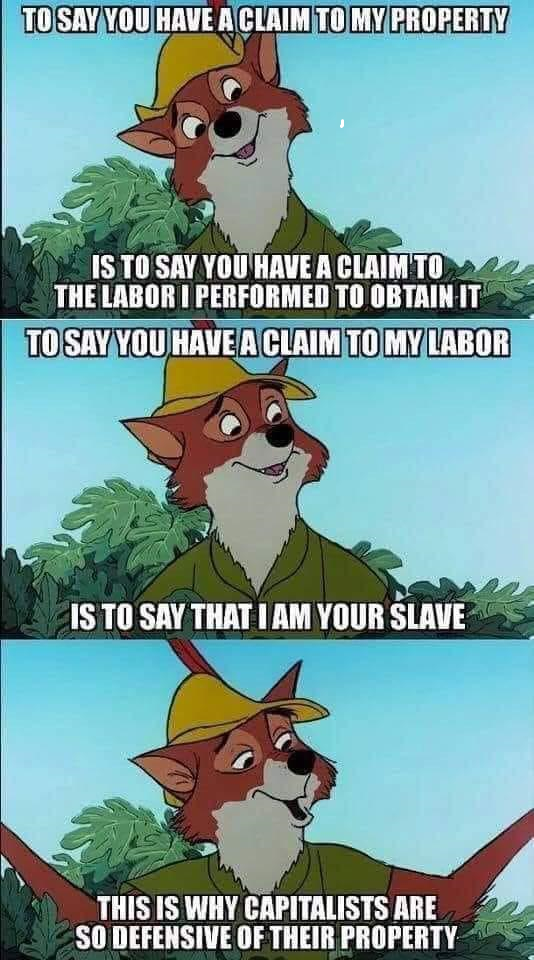- 9 Posts
- 12 Comments

 5·23 days ago
5·23 days agoFWIW globally, there is the issue of “welfare traps”. Benefits for low income people are usually tied to income (or savings). Once income reaches a threshold, these benefits must be replaced with income. So a higher income may result in a net loss.
He makes a good argument. I think the European experience supports him.
EU law uses the term “intellectual property”. In fact, “protection of intellectual property” is enshrined as a fundamental right in EU law. When EU politicians demand respect for fundamental rights and values from American tech companies, it implies cracking down on piracy and giving money to copyright owners.
Applying property thinking to data is responsible for many, maybe most, of the problems that make it so hard to build a tech industry in the EU.
To explain what that is: UK Newspapers all printed the same cover page to demand money for copyright owners. They all joined together to make their demand. Newspapers like to market themselves as guardians of democracy. This is what it looks like when they really want something.
They are spreading a lot of deceptive talking points. So here’s some facts.
UK copyright law applies in the UK. If the owners’ demands are met, then British people will have to pay owners around the world to use AI. These international owners try to invoke national solidarity by talking about “protecting British creativity”. But that’s a lie. British creatives would have to pay extra for software like photoshop, while the money would go to owners around the world. For example, Reddit would get money for owning the copyrights to the users’ posts.
Copyright is intellectual property. Like any other property, it is typically owned by the corporation that employed the worker that made it. If the owners are able to lobby their way to some free money, normal workers will not see a cent. Even most authors won’t. The printers, secretaries, janitorial staff, and so on, without whom none of these newspapers would exist, certainly won’t.
These are daily newspapers. Yesterday’s news are proverbially worthless. All the labor that went into producing these newspapers, including the authors, has been paid off. If these corporations get their wish, they will be able to sell their intellectual property a second time. That’s pure profit.
If this was about supporting “British creativity”, then you could use taxes to subsidize, for example, rooms for band practice. You could give the BBC more money for journalism. If you’re worried about job losses, you’d be thinking about unemployment benefits. No one is asking for any of that. It’s all about money for property owners around the world.

But it isn’t Wednesday yet?

 4·3 months ago
4·3 months agoThinking about how things have changed over the last century. And also about the differences between US states and between countries like Sweden, or Iran. That’s probably true. Especially for women, and LGB, and most especially TQ individuals.
Why make it a joke?

 18·3 months ago
18·3 months agoLooks a lot like a trunk load of fireworks exploded.
Good video on the Guardian’s channel: https://www.youtube.com/watch?v=pq9_zvpamUk
Video on the YT channel of The Times. Don’t know who is talking but they killed me: https://youtu.be/JrDnramp8i8?t=34

 0·4 months ago
0·4 months agoSeriously, why are they producing all these great promo shots for him? If they had done that for someone like Bernie Sanders, the US would be in much better shape now.

 111·4 months ago
111·4 months agoShe knows every corridor, every judge, every clerk in the courthouse.
The implication that knowing the people is more important than knowing the law is actually kinda worrying.
Ja. Gut so, Jaqueline. Lass alles raus, Jaqueline. Nicht durch die Nasen!

 2·10 months ago
2·10 months agoHigh taxes would potentially push more costs on renters.
Potentially, but I think here not so much. Competition drives prices down. In a perfectly competitive market, prices are pretty much equal to the cost of production. In that case, any tax would be completely passed on to the customer. But you can’t produce land at a certain location. My guess is that rents are largely determined by willingness to pay.
Trivia (from Wikipedia): “Taxman” from their 1966 album Revolver was the group’s first topical song and the first political statement they had made in their music.
“Taxman” was influential in the development of British psychedelia and mod-style pop, and has been recognised as a precursor to punk rock. When performing “Taxman” on tour in the early 1990s, Harrison adapted the lyrics to reference contemporaneous leaders, citing its enduring quality beyond the 1960s. The song’s impact has extended to the tax industry and into political discourse on taxation.
Unlike their other political songs, which are fairly vague peace&love jobs, this one tackles a concrete issue: It protests the 95% top marginal tax rate.
You’ve heard how “the boomers” screwed up everything for later generations. Here’s exhibit A from pop culture. Don’t just think about evil, old men in smoky backrooms.




Your local tax system probably works the same.